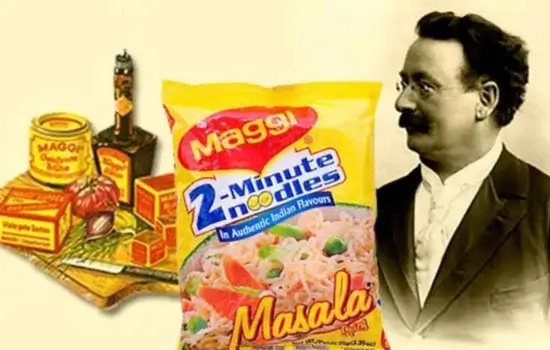Maggi, a brand owned by Nestlé, has become synonymous with instant noodles, particularly in India. Since its launch in 1983, Maggi has grown to be a household name, offering a wide range of products beyond just noodles, including sauces, soups, and seasonings. Despite its success, the brand has faced its share of challenges, including health controversies and intense market competition. This SWOT analysis will provide a detailed examination of Maggi’s strengths, weaknesses, opportunities, and threats in 2024.
Current Overview of Maggi
As of 2024, Maggi continues to dominate the instant noodles market in many countries, especially in India, where it enjoys a loyal customer base. The brand’s strong association with quick, convenient, and affordable meals makes it a favorite among students, young professionals, and families. However, Maggi’s journey has not been without hurdles. The 2015 controversy surrounding the alleged high lead content in its noodles significantly impacted its brand image. While the company has worked hard to regain consumer trust, this incident has left a lasting mark on its reputation. In addition to its noodles, Maggi’s expansion into soups, sauces, and seasonings has helped diversify its product portfolio.

Strengths
1. Brand Recognition and Loyalty: Maggi is a well-established brand with strong recognition, particularly in the instant noodles segment. Its catchy advertising slogans like “2-minute noodles” have made it a top-of-mind brand for quick meals. This brand loyalty is a significant asset, especially in highly competitive markets.
2. Strong Product Portfolio: Beyond noodles, Maggi offers a wide range of products, including soups, sauces, and seasonings. This diversification reduces the brand’s dependence on a single product line and helps it cater to a broader customer base.
3. Effective Marketing and Advertising: Maggi has consistently invested in strong advertising campaigns across various media, including television, print, and digital platforms. This extensive reach helps maintain its market presence and connect with different consumer segments.
4. Nestlé’s Backing: As a subsidiary of Nestlé, Maggi benefits from the parent company’s vast resources, including research and development (R&D) capabilities, global distribution networks, and financial stability.
Weaknesses
1. Health Concerns: Maggi noodles, like other processed foods, face criticism for their high sodium content and use of MSG (monosodium glutamate). These health concerns are particularly significant as more consumers shift towards healthier eating habits.
2. Over-Reliance on Instant Noodles: A significant portion of Maggi’s revenue comes from its instant noodles, making it vulnerable to market changes and health-related controversies. The 2015 lead contamination scandal is a prime example of how such reliance can pose risks.
3. Reputation Damage: The 2015 scandal in India severely damaged Maggi’s reputation. Although the brand has since recovered, the incident highlighted the potential vulnerability of its public image, especially in health-conscious markets.
4. Intense Competition: Maggi faces stiff competition from both local and international brands. Competitors like Sunfeast Yippee, Top Ramen, and Knorr have been actively working to capture market share, often through aggressive pricing strategies.
Opportunities
1. Expansion into Healthier Product Lines: With increasing consumer interest in health and wellness, Maggi has the opportunity to expand its product range to include healthier options, such as whole grain or fortified noodles. This could help the brand tap into a growing segment of health-conscious consumers.
2. Digital Engagement and E-Commerce: Strengthening its digital presence and e-commerce capabilities can help Maggi connect with younger, tech-savvy consumers. Online platforms also provide opportunities for direct-to-consumer sales and personalized marketing.
3. Global Expansion: Leveraging Nestlé’s global distribution network, Maggi can expand into new markets, especially in regions where instant noodles are gaining popularity. This would help diversify its revenue streams and reduce reliance on any single market.
4. Sustainability Initiatives: By focusing on sustainable sourcing and eco-friendly packaging, Maggi can enhance its brand image and appeal to environmentally conscious consumers. This would not only contribute to environmental conservation but also align with global trends towards sustainability.
Threats
1. Changing Consumer Preferences: The growing trend towards healthier, organic, and natural foods poses a threat to Maggi’s traditional product lines. As consumers become more health-conscious, there is a risk of declining demand for processed foods like instant noodles.
2. Regulatory Challenges: Stricter food safety regulations, particularly concerning labeling and ingredient transparency, could pose challenges for Maggi. Compliance with these regulations may require significant investments in product reformulation and quality control.
3. Market Saturation and Competition: The instant noodles market is highly saturated, with numerous players competing for market share. Intense competition can lead to price wars, which could impact Maggi’s profitability.
4. Negative Publicity: Any future health scandals or negative publicity could further damage Maggi’s brand image, leading to a loss of consumer trust and sales.
Conclusion
Maggi remains a strong and iconic brand in the instant noodles segment, backed by its wide product range, effective marketing, and the resources of its parent company, Nestlé. However, the brand faces significant challenges, particularly in terms of health concerns, reputation management, and intense competition. By focusing on innovation, expanding into healthier product lines, and leveraging digital channels, Maggi can continue to maintain its market leadership while adapting to changing consumer preferences. The brand’s ability to navigate these challenges and capitalize on new opportunities will be crucial for its sustained success in the coming years.